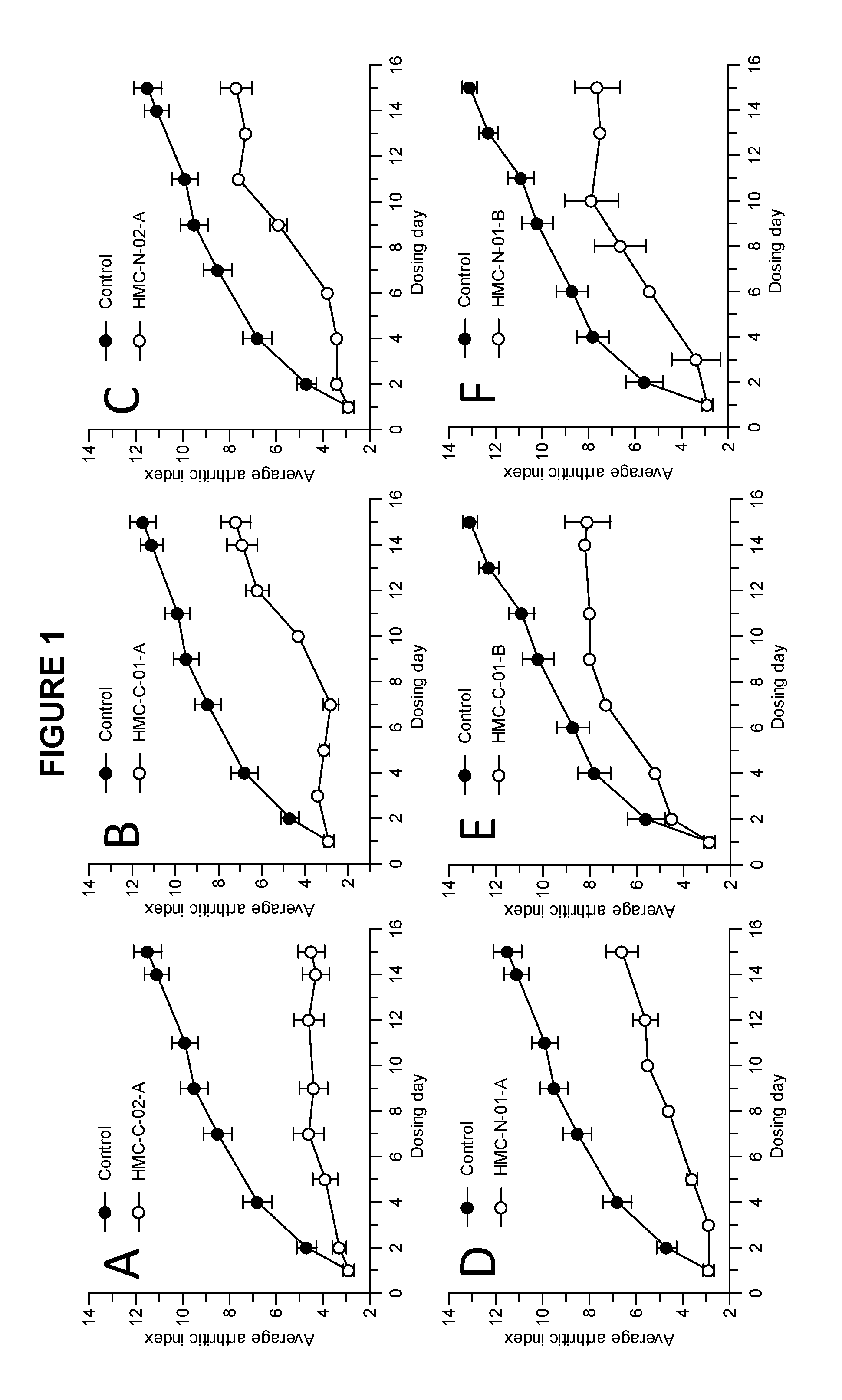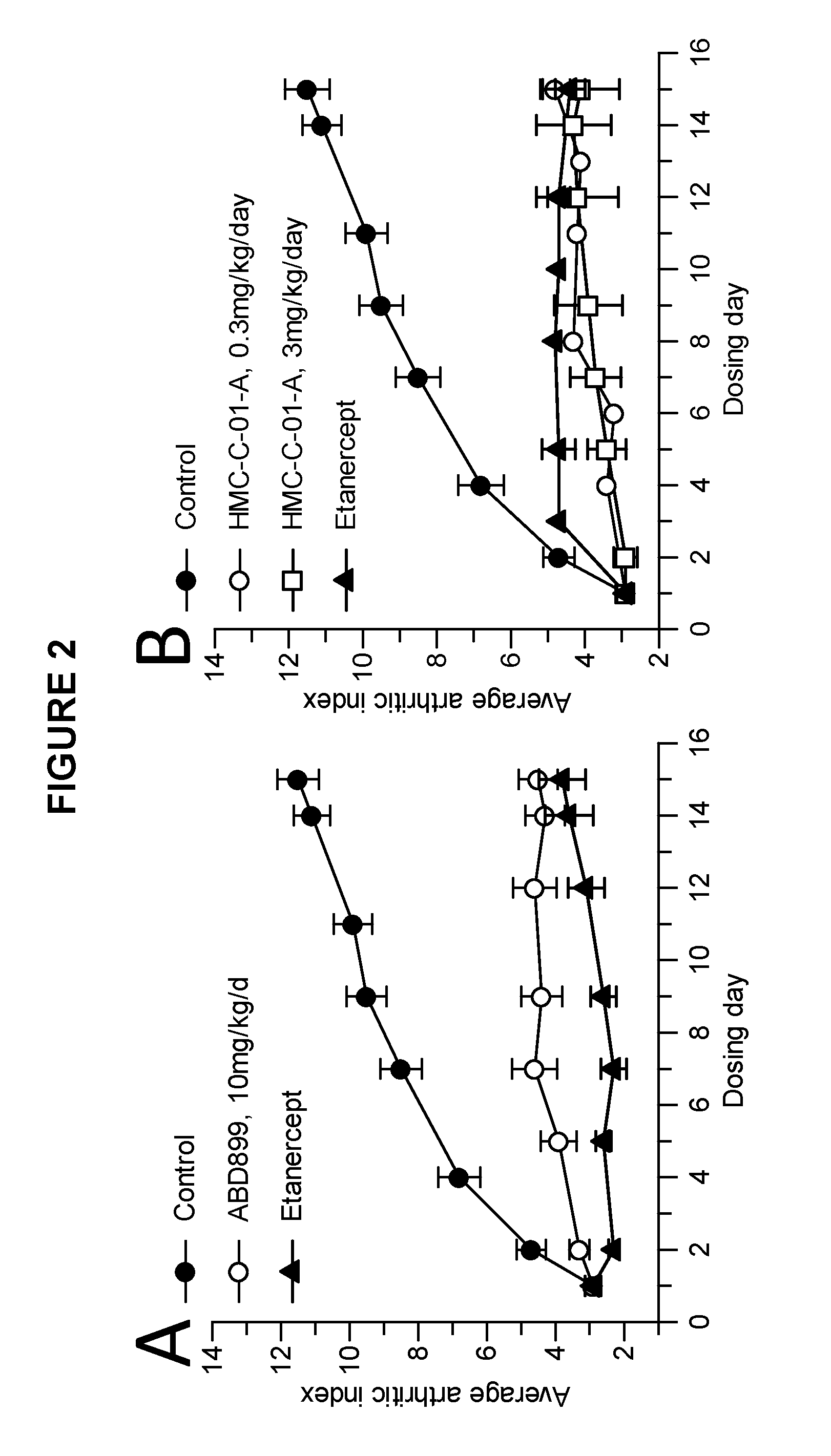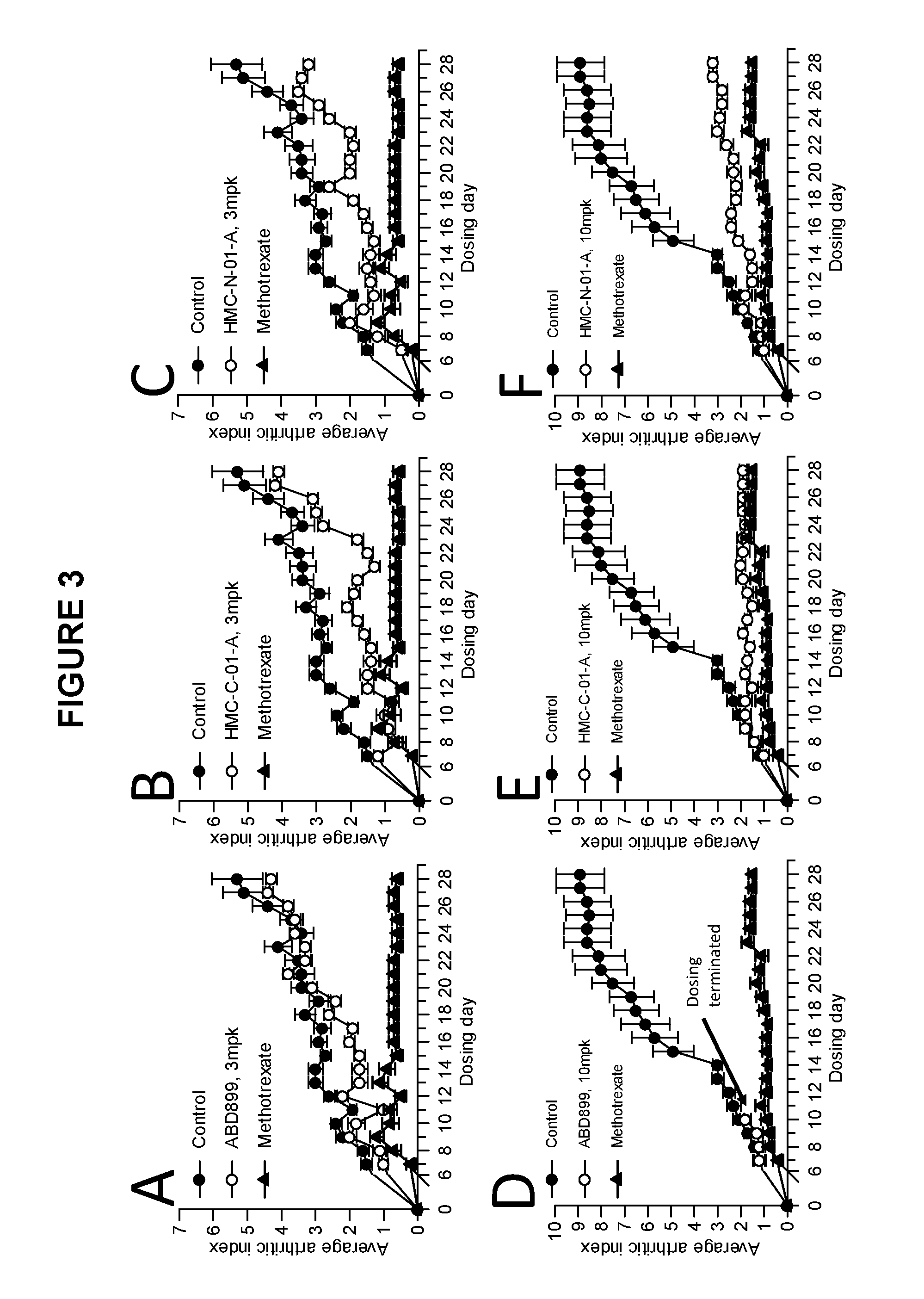N-(4-hydroxy-4-methyl-cyclohexyl)-4-phenyl-benzenesulfonamides and n-(4- hydroxy-4-methyl-cyclohexyl)-4-(2-pyridyl)benzenesulfonamides and their therapeutic use
a technology of n-(4-hydroxy-4-methyl cyclohexyl) and n-(4-hydroxy-4-methyl cyclohexyl)4(2pyridyl)benzenesulfonamides, which is applied in the field of therapeutic compounds, can solve the problems of vascularisation of synovium, severe pain and disability, and deterioration of the synovium, and achieve the effect of reducing the risk of cardiovascular disease, reducing the risk of pulmonary pulmonary pulmonary pulmonary
- Summary
- Abstract
- Description
- Claims
- Application Information
AI Technical Summary
Benefits of technology
Problems solved by technology
Method used
Image
Examples
Embodiment Construction
Compounds
[0075]One aspect of the present invention relates to certain compounds which may conveniently be described as substituted N-(4-hydroxy-4-methyl-cyclohexyl)-4-phenyl-benzenesulfonamide and N-(4-hydroxy-4-methyl-cyclohexyl)-4-(2-pyridyl)benzenesulfonamide compounds.
N-(4-hydroxy-4-methyl-cyclohexyl)-4-phenyl-benzenesulfonamide
[0076]
N-(4-hydroxy-4-methyl-cyclohexyl)-4-(2-pyridyl)benzenesulfonamide
[0077]Thus, one aspect of the present invention is a compound selected from compounds of the following formulae, or a pharmaceutically acceptable salt, hydrate, or solvate thereof (for convenience, collectively referred to herein as “HMC compounds”):
[0078]Note that the substituents on one side of the cyclohexyl ring (i.e., —OH and —CH3 on the right-hand side) may be positioned “trans” / “cis” or “cis” / “trans” with respect to the rest of the molecule (that is, on the cyclohexyl ring to which they attached, with respect to the rest of the compound which is attached at the para position of ...
PUM
 Login to View More
Login to View More Abstract
Description
Claims
Application Information
 Login to View More
Login to View More - R&D
- Intellectual Property
- Life Sciences
- Materials
- Tech Scout
- Unparalleled Data Quality
- Higher Quality Content
- 60% Fewer Hallucinations
Browse by: Latest US Patents, China's latest patents, Technical Efficacy Thesaurus, Application Domain, Technology Topic, Popular Technical Reports.
© 2025 PatSnap. All rights reserved.Legal|Privacy policy|Modern Slavery Act Transparency Statement|Sitemap|About US| Contact US: help@patsnap.com



